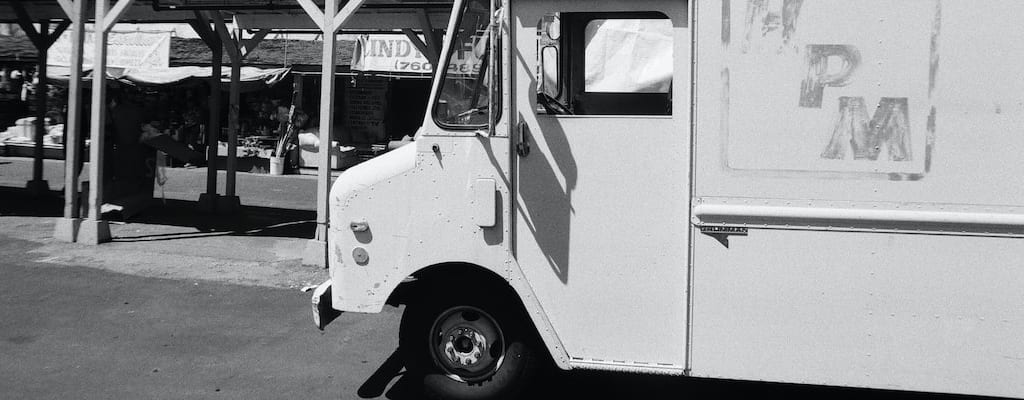back up the truck: Idiom Meaning and Origin
What does ‘back up the truck’ mean?
"Back up the truck" is an idiom used to mean taking action or making a big effort to acquire or obtain a large amount of something.

Idiom Explorer
The idiom "put one's back into" means to exert a lot of physical effort or work very hard to achieve a task or goal.
The idiom "keep on trucking" means to persist or continue working hard despite difficulties or setbacks.
"Keep on truckin'" is an idiomatic expression that means to persist or continue doing something with determination and perseverance, especially in the face of challenges or obstacles.
The idiom "in one's back pocket" means to have complete control or influence over someone or something.
The idiom "heavy lifting" refers to the difficult or hard work needed to accomplish a task or achieve a goal.
An idiom that means to gain momentum or build up force, often used in the context of a person or group gathering energy or enthusiasm for a task or goal.
The idiom "have truck with" means to be involved or associated with someone or something.
The idiom "have someone's back" means to be supportive or protective of someone. It implies being there for someone in times of need or difficulty.
The idiom "have one's back up" means to become defensive or angry due to feeling threatened or criticized.
Uncovering Origins
The idiom "back up the truck" is a common phrase in American vernacular. It is often used metaphorically in a business or financial context to describe making a significant offer or providing a large amount of something. While there is no definitive origin for this phrase, one interpretation suggests that it may have originated from the practical action of reversing a truck to unload a large quantity of items. This literal interpretation gradually shifted to a more metaphorical meaning over time.
Using the idiom "back up the truck" figuratively implies offering a significant amount of money or resources to secure a deal or make a large purchase. It can be used in various financial contexts, such as when a company decides to make a substantial investment or when someone is willing to pay a significant sum for a particular item or asset. It signifies a willingness to go above and beyond expectations.
It is worth noting that the term "truck" in this idiom is not limited to a literal truck. Instead, it represents a vehicle that can transport or deliver something significant. This allows for different interpretations depending on the context in which the idiom is used.
The idiomatic phrase "back up the truck" reflects the dynamic nature of language and the power of metaphors to convey complex ideas succinctly. It reminds us of the role wordplay and figurative language play in our everyday communication, enabling us to express abstract concepts in a more relatable and memorable manner.
The idioms "back up," "fall off the back of a truck," "have one's back up," "have truck with," and "keep on trucking" are related to the idiom "back up the truck." These idioms share common themes and language related to trucks or backing up, but each has its own distinct meaning and usage.
"Back up" is a phrase that can mean different things depending on the context. One interpretation is aligning with the idea of reversing a vehicle, similar to "back up the truck." This phrase can also mean providing support or assistance to someone. For example, if someone is in a difficult situation, you can say, "I've got your back." This idiom conveys the idea of being there for someone and offering help when needed.
"Fall off the back of a truck" is another idiomatic phrase related to "back up the truck." This expression is often used to describe acquiring something illegally or dishonestly, as if it had fallen off the back of a truck. While "back up the truck" implies an action of providing a large quantity of something, "fall off the back of a truck" suggests obtaining something through questionable means.
Additionally, the idiom "have one's back up" is related to "back up the truck." This phrase describes someone being defensive or getting angry in response to a perceived threat or challenge. It conveys the idea of bracing oneself for a confrontation or defending one's position.
"Have truck with" is another idiomatic phrase that relates to the concept of "back up the truck." This phrase is often used to describe one's willingness or inclination to associate with or engage in certain activities or individuals. It implies a level of comfort or affinity with a particular person, idea, or behavior.
Finally, the idiom "keep on trucking" is also related to "back up the truck." This phrase encourages perseverance and resilience in the face of challenges or difficulties. It originated from the trucking industry, where drivers need to keep moving forward despite obstacles or setbacks. Using this idiom signifies the importance of staying determined and continuing to make progress.
The idiom "back up the truck" is a versatile phrase that conveys the idea of offering a significant amount of something in a business or financial context. Its origins are uncertain, but it likely stemmed from the literal action of reversing a truck to unload goods. The related idioms "back up," "fall off the back of a truck," "have one's back up," "have truck with," and "keep on trucking" share common themes or language related to trucks or backing up, but each has its own distinct meaning and usage. These idioms highlight the dynamic nature of language and the power of metaphors to express complex ideas in a relatable and memorable way.
Example usage
Examples of how the idiom "back up the truck" can be used in a sentence:
- He's so excited about the new sale that he's ready to back up the truck and buy everything in the store.
- The company announced a huge discount on their products, so customers are going to back up the truck and take advantage of the savings.
- When they heard that their favorite band was coming to town, they decided to back up the truck and get front row tickets.
More "Transportation" idioms



